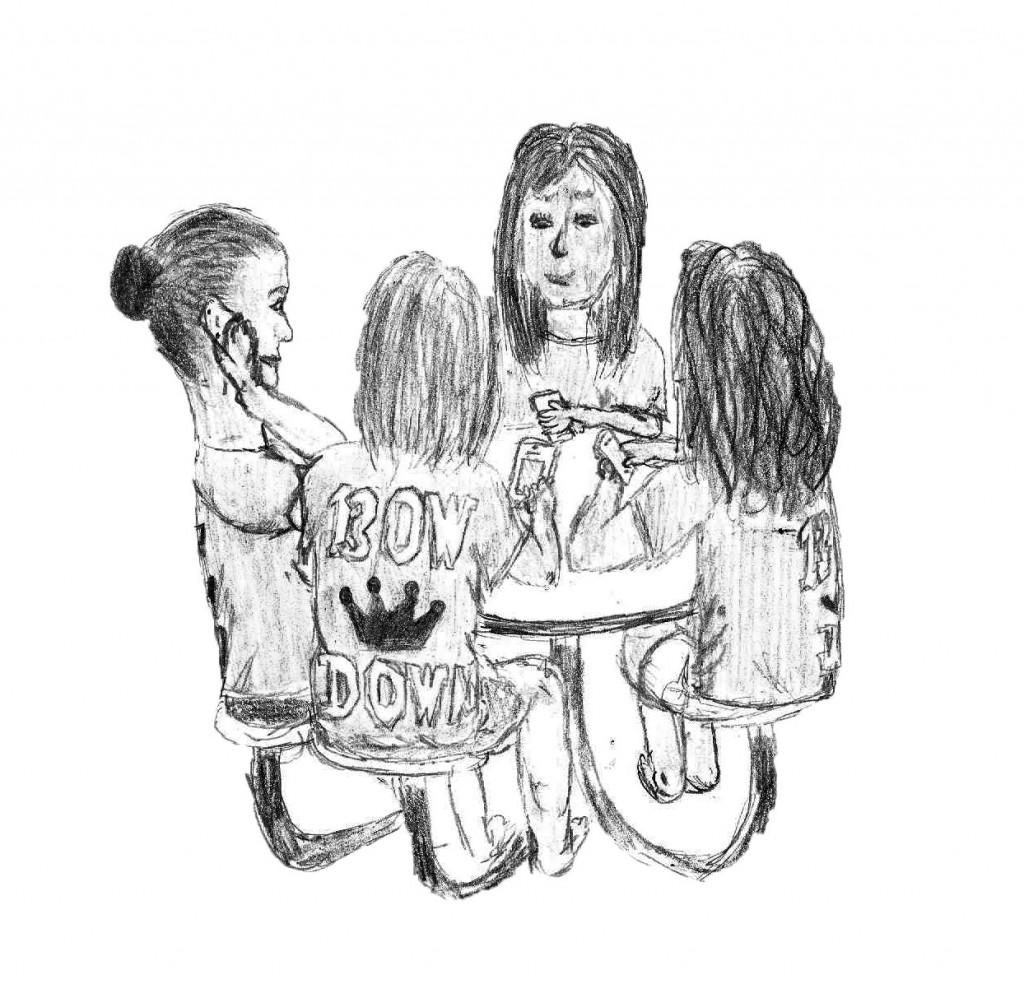It’s time for me to come clean.
In first grade, at the age of six, I played on one of Westport’s rec soccer teams. To say that I “played,” though, is a bit misleading. What I did on that field involved very little understanding of the game and quite a bit of mindless running around, looking at the grass, and catching insects.
By rough estimation, although I didn’t touch the ball a single time, I scored about negative six goals that fall. Yet at the end of the season, I was awarded a trophy that read something along the lines of “GREAT JOB! YOU’RE AMAZING!”
I wasn’t alone.
Millions of kids across the country receive similar trophies, stickers and congratulatory awards each year, often for doing nothing extraordinary. I was (and still am) absolutely awful at soccer, yet a group of adults decided to throw heaps of praise upon my non-existent skills, in what I can only imagine was some sort of politically-correct, new-age-parenting effort to boost my self-esteem.
It was a nice touch, to be sure, and full of good intentions. Yet I can’t help but feel like this kind of carefree praise – which is widespread, and shows up in everything from soccer games to elementary school P.E. classes, places in which every child has to win all the time – might be contributing to the narcissism that seems to define my generation.
Because we are a generation of narcissists, no matter how you look at it. We used to be called Generation Y, but we felt the need to hijack ten whole centuries so that we could be “The Millennials.”
We’re Generation ME, a wave of apathetic individuals who are so infatuated with our own individuality that everything we do must revolve around ourselves. We’re the iGeneration, selfie-obsessed, seeming to care only about likes on Instagrams, friends on Facebook, favorites on our tweets, and other meaningless pleasures that help us to glorify, well, us.
I once heard a horror story about someone who deletes an Instagram photo if it doesn’t get more than 100 likes. If we could give ourselves a trophy today, we’d probably engrave it with
“RT if I’m #AMAZING!”
And when you stop to think about it, it’s easy to find fault within ourselves for this narcissistic, reflection-gazing behavior. Perhaps we’ve been spurred on a bit by the rec soccer trophies, but we’re still the ones who decide to post the photos of our feigned, makeup-adorned smiles and send the self-congratulating tweets.
At the same time, though, we’ve grown up with technology as an integral part of our lives. Our parents didn’t have that opportunity, nor did their parents before them. Is our generation inherently more narcissistic than previous generations, or has technology simply made our narcissism more obvious?
I’d like to think it’s the latter, coupled with the aforementioned political-correctness and the fear of lawsuits. At least that offers a sliver of hope that we, as Generation ME, are not quite as self-absorbed as we might seem.
Perhaps we don’t always need to be given a trophy. Perhaps we don’t always need to be the winner at everything. We’re great, but it’s statistically impossible that we’re always, all the time, in every way, amazing. Everyone has to have at least one or two bad days and more than a few mediocre days.
No human being can always be the most popular, smart, athletic, beautiful, high-achieving person in a room.
So here we are in a room: all 467 of us, plus relatives, gathered together in a very hot field house on what is no doubt a very warm day. Lo and behold, we’re probably all thinking about ourselves: What am I doing tonight?…I’m so bored…When is my name gonna be called?…Why is it so hot in here?
Look: I’m probably thinking about myself right now too. Narcissism is a part of human nature, and I’m not denying that. But I’m also hoping that as we graduate, and as we move away from a very insulated place to a less-insulated place, we might begin to focus less on ourselves and more on each other and the world around us.
Generation WE has a nice ring to it, no?














































